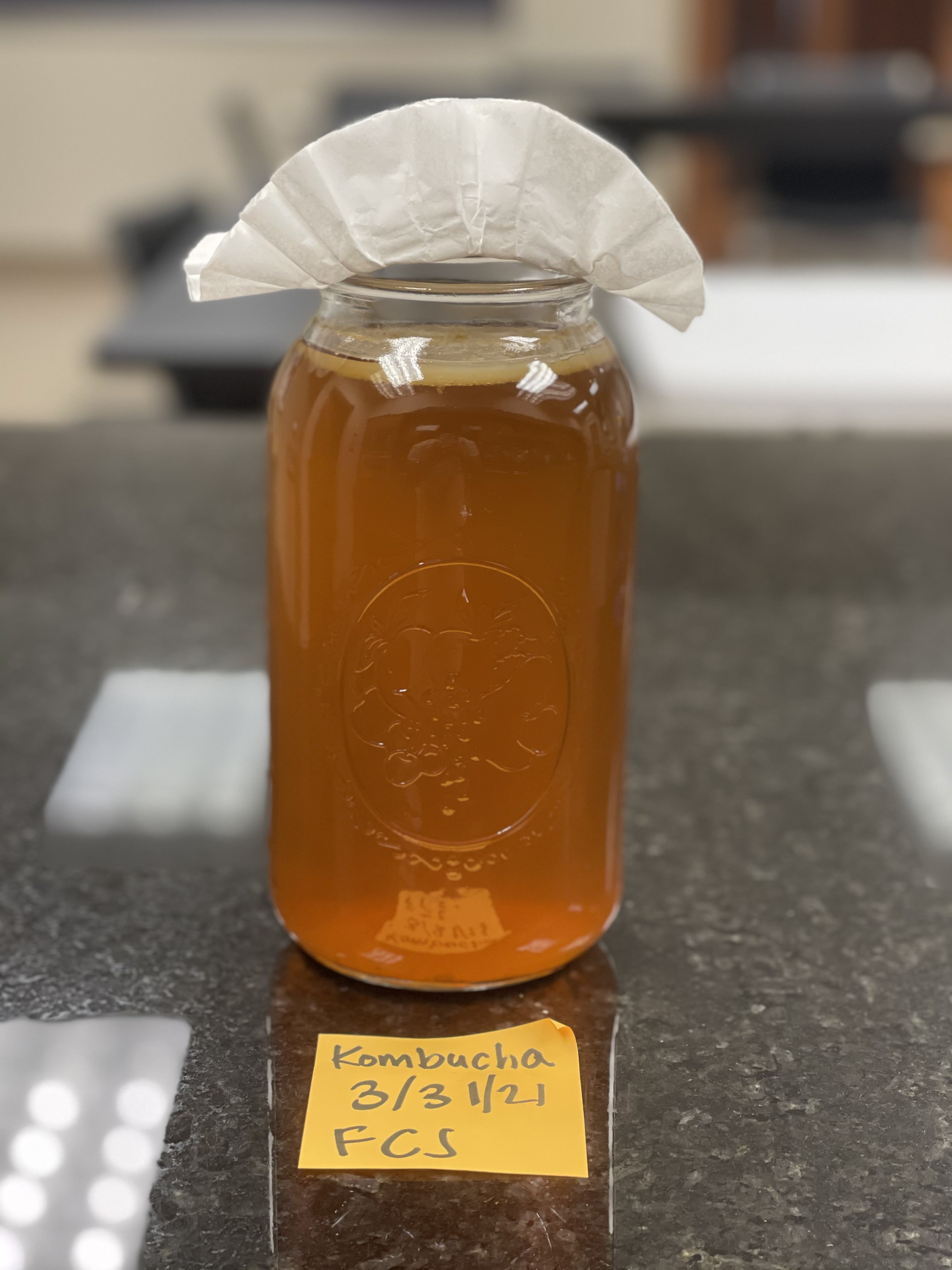What’s the Deal With Kombucha?
go.ncsu.edu/readext?791983
en Español / em Português
El inglés es el idioma de control de esta página. En la medida en que haya algún conflicto entre la traducción al inglés y la traducción, el inglés prevalece.
Al hacer clic en el enlace de traducción se activa un servicio de traducción gratuito para convertir la página al español. Al igual que con cualquier traducción por Internet, la conversión no es sensible al contexto y puede que no traduzca el texto en su significado original. NC State Extension no garantiza la exactitud del texto traducido. Por favor, tenga en cuenta que algunas aplicaciones y/o servicios pueden no funcionar como se espera cuando se traducen.
Português
Inglês é o idioma de controle desta página. Na medida que haja algum conflito entre o texto original em Inglês e a tradução, o Inglês prevalece.
Ao clicar no link de tradução, um serviço gratuito de tradução será ativado para converter a página para o Português. Como em qualquer tradução pela internet, a conversão não é sensivel ao contexto e pode não ocorrer a tradução para o significado orginal. O serviço de Extensão da Carolina do Norte (NC State Extension) não garante a exatidão do texto traduzido. Por favor, observe que algumas funções ou serviços podem não funcionar como esperado após a tradução.
English
English is the controlling language of this page. To the extent there is any conflict between the English text and the translation, English controls.
Clicking on the translation link activates a free translation service to convert the page to Spanish. As with any Internet translation, the conversion is not context-sensitive and may not translate the text to its original meaning. NC State Extension does not guarantee the accuracy of the translated text. Please note that some applications and/or services may not function as expected when translated.
Collapse ▲You may have heard this strange word in your friends and family circles. But, what is kombucha?
Kombucha is a fermented beverage made from tea, sugar, and a culture called Symbiotic Culture of Bacteria and Yeast (SCOBY). According to our friends from Michigan State University, Kombucha has hailed from Northeast China from around 220 B.C. The taste of kombucha is slightly sweet, tart, and sometimes fizzy. Kombucha can come in many flavors by adding juices to the prepared kombucha. Although there have been many claims of health benefits, there hasn’t been confirmation of research in them.
 However, as a fermented food, kombucha contains probiotics which are beneficial for gut health. The process to make kombucha includes brewing tea, adding sugar, and then adding the kombucha under certain conditions. You can make your own or enjoy commercially made kombuchaalmost anywhere. For information on making kombucha safely, check out Colorado State University Extension’s article on “Understanding and Making Kombucha”.
However, as a fermented food, kombucha contains probiotics which are beneficial for gut health. The process to make kombucha includes brewing tea, adding sugar, and then adding the kombucha under certain conditions. You can make your own or enjoy commercially made kombuchaalmost anywhere. For information on making kombucha safely, check out Colorado State University Extension’s article on “Understanding and Making Kombucha”.
References: “Kombucha tea: origin, ingredients and precautions” – Michigan State University Extension




